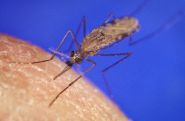Marie-Antoinette’s Historic Bracelet Presented in New York
- 23/10/2024
- 5 comments
- 36
- 125


Natasha Metni Torbey 11:40

Rami Rayess 08:30

This is Beirut 22/10 23:55

This is Beirut 22/10 23:12

Malo Pinatel 22/10 23:05

This is Beirut 09:35

This is Beirut 04:50

This is Beirut 22/10 19:25

This is Beirut 22/10 19:21

This is Beirut 22/10 18:36
This is Beirut 22/10 19:00
This is Beirut 22/10 17:55
This is Beirut 22/10 17:51
Victoria C. Werling 22/10 17:50

This is Beirut 13:10

This is Beirut 22/10 19:58

This is Beirut 22/10 17:46

This is Beirut 22/10 17:46

This is Beirut 22/10 17:46

This is Beirut 14:00

This is Beirut 10:30

This is Beirut 22/10 18:00

This is Beirut 22/10 14:00

This is Beirut 22/10 10:30

This is Beirut 11:40

This is Beirut 10:05

This is Beirut 22/10 18:29

This is Beirut 22/10 17:55

Makram Haddad 22/10 17:50

Alain E. Andrea 22/10 17:49

This is Beirut 16/10 15:40

This is Beirut 15/10 14:15

This is Beirut 12/10 10:00

Alain E. Andrea 10/10 12:00

par Ici Beyrouth, 14:00

par Ici Beyrouth, 13:40

par Ici Beyrouth, 12:45

par Ici Beyrouth, 12:35

par Ici Beyrouth et AFP, 11:45